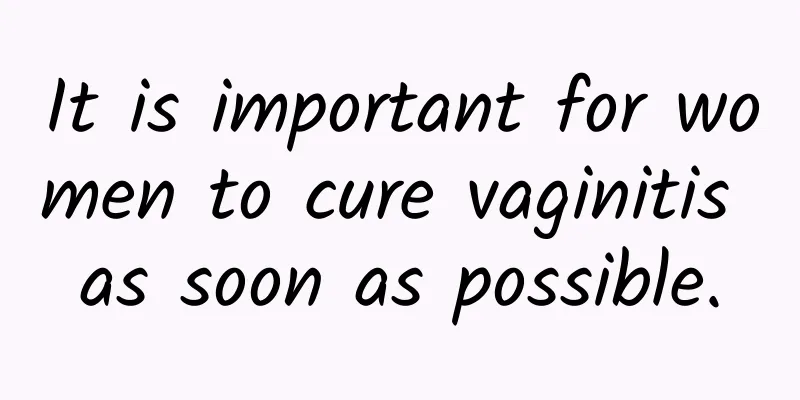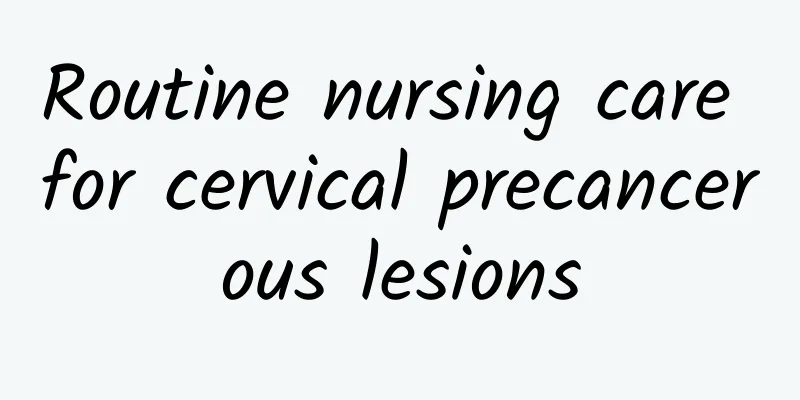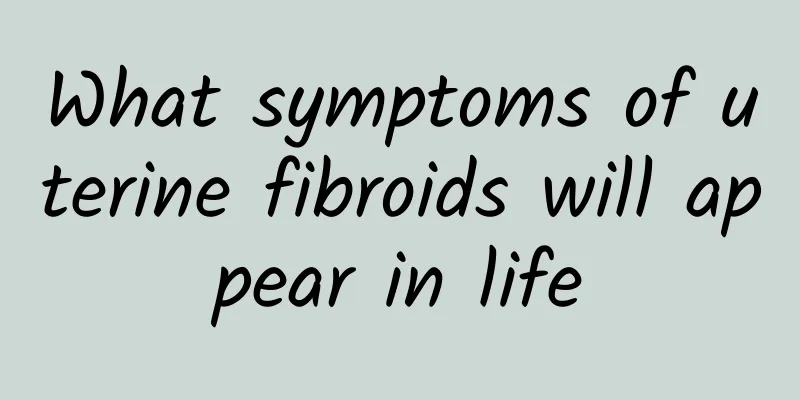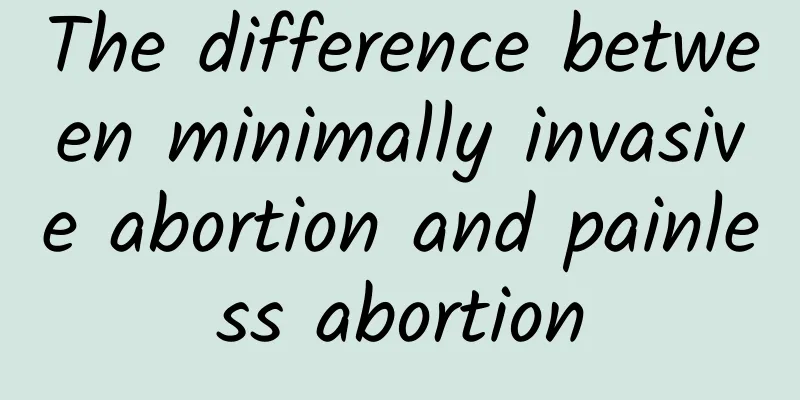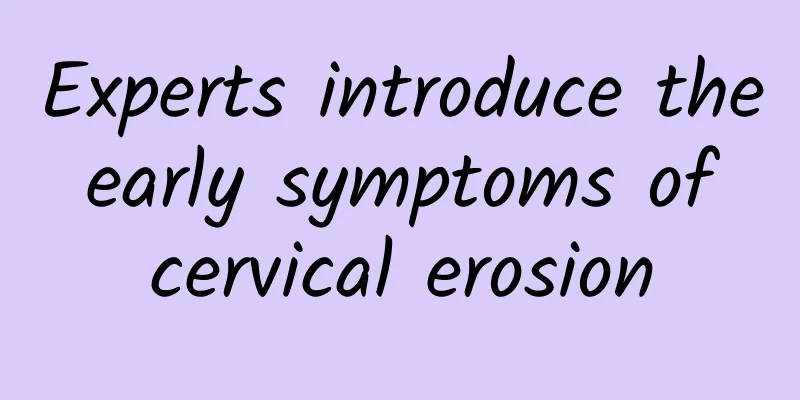How to cure the pain of lymphatic dysmenorrhea patients and how to eliminate lymphatic pain
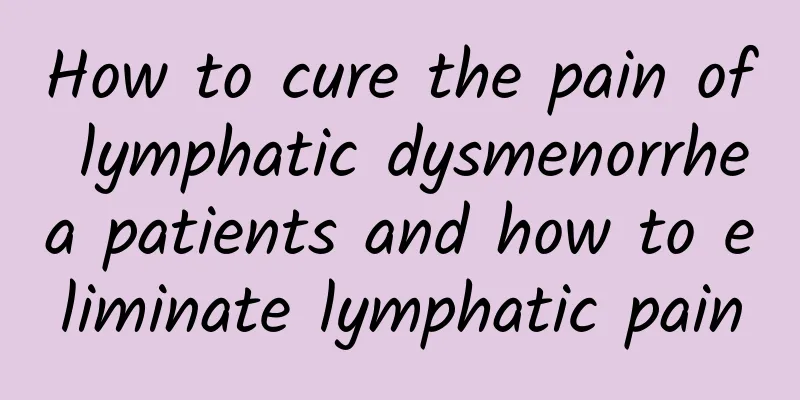
|
Lymphatic dysmenorrhea is a common gynecological disease that brings great pain and distress to patients. However, through reasonable treatment and lifestyle adjustments, the pain of patients with lymphatic dysmenorrhea can be alleviated and eliminated. This article will introduce how to cure the pain of patients with lymphatic dysmenorrhea from multiple aspects and help patients get rid of the distress of this disease. 1. Diet adjustment: Eat the right food to relieve pain Diet plays a vital role in the treatment of lymphatic dysmenorrhea. First, patients should avoid eating spicy foods, such as peppers and peppercorns, which can aggravate the symptoms of lymphatic dysmenorrhea. Secondly, they should increase their fiber intake and eat more vegetables, fruits, and whole grains, which can help improve constipation and reduce abdominal pain. In addition, appropriately increasing protein intake can provide nutritional support and help patients recover. 2. Exercise adjustment: relax your body and mind and relieve pain Exercise is very helpful in treating lymphatic dysmenorrhea. Appropriate exercise can promote blood circulation and lymph flow, relieve pain and muscle stiffness. Common forms of exercise include walking, Tai Chi, yoga, etc. Patients can choose the exercise method that suits them according to their physical conditions. In addition, proper heat and stretching before and after exercise can relieve muscle pain and discomfort. 3. Adjust your lifestyle: Live a regular life to prevent recurrence of the disease Patients with lymphatic dysmenorrhea need to pay attention to some details in their daily lives to avoid worsening and recurrence of the disease. First, maintain a regular daily routine and try to avoid staying up late and overwork, which will help maintain the body's normal functions and immunity. Secondly, avoid cold and humid environments and keep the room temperature appropriate, which can alleviate the symptoms and pain of dysmenorrhea. In addition, patients should try to avoid emotional fluctuations and excessive stress, learn to relax, and maintain a good attitude, which will help stabilize and alleviate the condition. Conclusion: Through reasonable treatment and lifestyle adjustments, the pain of patients with lymphatic dysmenorrhea can be alleviated and eliminated. Dietary adjustment, exercise adjustment and lifestyle adjustment are important means of treating lymphatic dysmenorrhea. I hope that the methods and suggestions provided in this article can help patients with lymphatic dysmenorrhea recover their health as soon as possible and relieve their pain. |
<<: What is the difference between curettage and abortion? Is curettage equivalent to an abortion?
Recommend
Does smoking have a big impact after abortion?
Smoking after an abortion has a great impact on t...
What does thick endometrium mean?
Endometrial thickness is also known as endometria...
Experts analyze the main causes of mild cervical erosion
Among cervical erosions, mild cervical erosion is...
What are the symptoms of uterine posterior wall fibroids? Are small uterine posterior wall fibroids serious?
Posterior uterine wall fibroids refer to fibroids...
48-year-old female menstruation
48-year-old female menstruation A 48-year-old wom...
Drug treatment of adnexitis
Regarding the treatment of adnexitis, experts say...
Is eating a big meal a sin? ! Do these muscle endurance exercises and grow muscles unexpectedly
The year-end banquets started one after another, ...
What Chinese medicine can treat primary amenorrhea?
Primary amenorrhea can be treated with Chinese me...
What should pregnant women do if they have uterine fibroids? How should pregnant women treat uterine fibroids?
Uterine fibroids are the most common benign tumor...
Understand the causes of gynecological fungal vaginitis
The cause of gynecological mycotic vaginitis is a...
What should I do if I am unmarried and have uterine fibroids? What are the causes of unmarried people suffering from uterine fibroids?
What are the causes of unmarried women suffering ...
What are the symptoms of pelvic effusion?
Pelvic effusion is the presence of inflammatory e...
What you should know about cervicitis
Chronic cervicitis is a common disease among wome...
Cost of treating a minor threatened miscarriage
Many pregnant mothers become nervous when they ex...
Prevention of cervical hypertrophy starts from daily life
There are many gynecological diseases in women, a...


